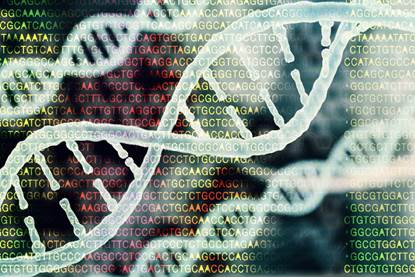Indian Biological Data Bank

Disclaimer: Copyright infringement not intended.
Context
- The government has for the first time set up a digitised repository called the ‘Indian Biological Data Bank’.
The Bank
- In this, Indian researchers will store biological data from publicly funded research.
- The digitised data will be stored on a four-petabyte supercomputer called ‘Brahm’. A petabyte equals 10,00,000 gigabytes (gb).
- The government has mandated that data from all publicly funded research should be stored in this central repository. So, it will not only provide a platform for researchers to securely store their data within the country, it will also provide access to a large database of indigenous sequences for analyses.
- The bio-bank, currently accepts neucleotide sequences — the digitised genetic makeup of humans, plants, animals, and microbes. There are now 200 billion base pair data in the bio-bank, including 200 human genomes sequenced under the ‘1,000 Genome Project’, which is an international effort to map the genetic variations in people. The project will also focus on populations that are predisposed to certain diseases.
- Other than human and Sars-CoV-2 genomes, the database will also store the 25,000 sequences of Mycobacterium Tuberculosis that another national consortium is trying to sequence.
- The database currently also stores the genomic sequences of crops such as rice, onion, tomatoes and mustard, among others.
Significance
- Such databases have traditionally played a key role in determining the genetic basis of various diseases and finding targets for vaccines and therapeutics.
- At present, most Indian researchers depend on the European Molecular Biology Laboratory (EMBL) and National Center for Biotechnology Information databases for storing biological data. ‘Indian Biological Data Bank’ will reduce our dependency on them.
- TB Bacteria sequences will help not only in understanding the spread of multi-drug and extremely drug resistant TB in the country, but also aid the search for targets for new therapies and vaccines.
- With genomes of humans, animals, and microbes present in the same database, it will also help researchers in studying zoonotic diseases, that is, diseases that jump from animals to humans.




1.png)
